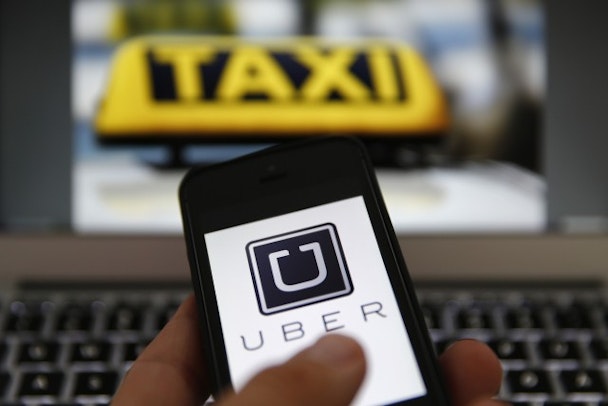Uber's brand battle: How the controversial tech firm can overcome its opponents in 2016
For a fraction of a second, to 'Uber' something was a good thing.

You work your ass off in obscurity for years, create an idea that liberates millions from the shackles of oppressive business and government interests (ie - the taxi mob, and their licensing raj), become 50 billion dollar ultimate unicorn success story … and the next day you are Public Enemy #1. Such is the fate of Uber, and to a lesser extent Airbnb at the moment.
So what’s a smart brand owner to do?
I have often been surprised by the shyness of companies to make their case if they have a good one to make. Equally by the low quality of the debate the minute they leave Anglo-American lands.
Beyond Silicon Valley, few regular mortals know much about Uber. Give or take a few idealised articles in the tech press, we really know nothing about these companies or their leaders. Who is behind it really? Why should we trust them? We really would not know since they rarely tell us their story.
This is where the brand comes to the fore. When Warren Buffett spends billions on old-fashioned brands, he buys them for better and for worse. Strong brands can survive the worse. Brands that have a voice are more likely to be given the benefit of a doubt. People often think of advertising – especially and ironically in this click-driven world of instant sales in this category – as purely transactional, and that this transaction is the sole metric by which to judge the ROI.
Fundamentally a brand is a trust-mark. A promise. And just like all relationships of trust, it can be injured. But strong brands recover and the weak die off. I hope Uber thrives. I am a longstanding customer and early adopter. I just hope they get as smart with their public profile – aka, the BRAND.
There are 50 billion reasons why Uber is strong enough to survive the current stormy weather. However, Uber needs to pay more than lip service to opponents; it should engage with the arguments of the taxi lobbies, and the city officials that are strong in Europe and elsewhere. Many countries have regulations in place that favour narrow ‘producer’ or ‘trade’ interests over consumer interests. They are having an easy time in boxing Uber up in a narrow space.
The enemies of change will reach into an established bag of tricks. They will try to position Uber as the ‘Ugly American’. This is an old and tired canard. Yet Uber need not walk into it that trap. It does need to spend the time to really understand the local markets, local interests and local consumers. Recent developments suggest a lack of sensitivity that would allow it to avoid some of the potholes on the road to global success.
Nor should Uber allow itself to be painted as the ruthless amoral new economy bully. Rather it must try to be the cheeky insurgent (see Virgin/Branson). It should try to keep a lightness of tone in its communications – even, or especially, when being viciously attacked. Be the David vs the Goliaths. People like the rebel, not the arsonist.
Uber is a functional brand. It does something that actually works and is of real benefit to consumers. It has inserted itself into our most essential smartphone space and it will not leave. And yet the Uber brand is lacking depth. It’s hard to like someone you barely know and you can’t know them if they don’t tell us their story. And if they don’t tell us their story maybe they have something to hide, or some secret agenda. Recent vintage digital brands need to take more care.
So, dear Uber, stand your ground. But tell your story, and stay positive. The key question – do you want to be right, or do you want to win?
Brian Elliott is CEO of Amsterdam Worldwide
